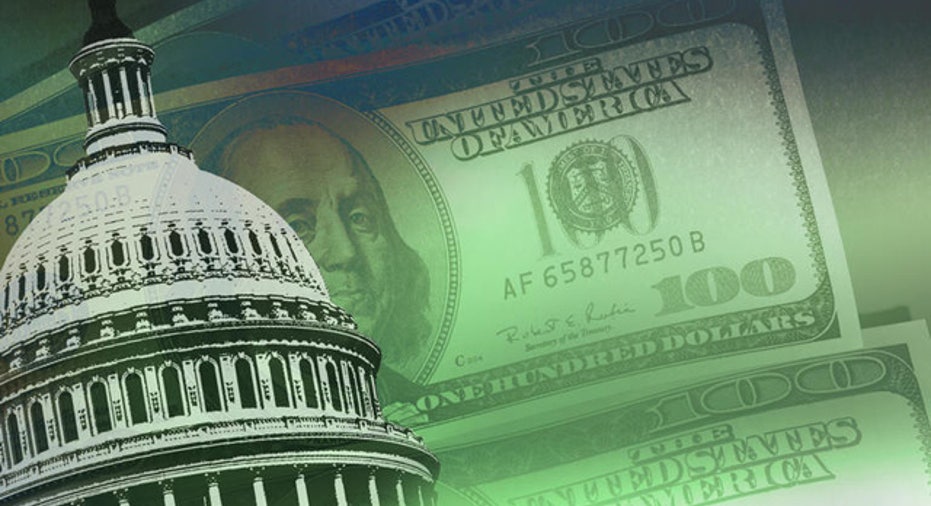Markets Shrug Off Sequestration

Travelers heading in and out of the U.S. at the nation’s already-overburdened airports may have to wait in line twice as long if sequestration hits on Friday, but stock markets certainly aren’t sweating it.
The Dow Jones Industrial average was up nearly 200 points on Wednesday afternoon and hovering above the psychologically important 14,000 level a day and a half ahead of the automatic budget cuts known as sequestration that are set to kick in March 1.
White House officials and various members of the Obama administration have stressed the negative impact of across-the-board budget cuts primarily to social programs and the defense budget.
Homeland Security Secretary Janet Napolitano, for instance, said earlier this week that wait times at customs for travelers would likely double due to staff reductions at U.S. airports if the cuts go into effect. Other administration officials have decried the potential loss of funding to various medical research and educational programs.
Republicans, especially those with roots in the cost-conscious Tea Party movement, have accused the administration of using scare tactics and campaigning rather than looking for real alternatives to the mandated cuts.
The markets, meanwhile, seem to be taking this latest government spending impasse in stride.
Stan Collender, a partner at Qorvis Communications and a former staffer to both the House and Senate Budget Committees, said Wall Street has “priced in” sequestration, meaning investors have already factored into their strategies what impact the budget cuts might or might not have.
Impervious Stock Markets
Stock markets tend to react on a day-to-day basis, falling Monday, for example, on news out of Italy that Italian voters are tired of austerity measures, a sentiment that could prove problematic for European fiscal leaders trying to pull Italy out of debt.
Today U.S. markets are up on positive housing data.
Overall, stock markets have been surging in recent months based on confidence that Ben Bernanke and his colleagues at the Federal Reserve will continue their easy money policies of bond buying and historically low interest rates. Both policies have steered money away from savings accounts and into riskier assets such as stocks.
Bernanke strongly reaffirmed that strategy this week during two days of testimony before Congress, another factor that pushed stocks higher on Wednesday.
There’s also a healthy debate over exactly how big the budget cuts will be when and if they go into effect. The Obama administration has used a figure of $85 billion in 2013 while a Congressional Budget Office report says just $44 billion of the $85 billion sequester would be cuts in actual federal outlays this year.
Last Minute Deal?
Either way, there’s always the time-honored tradition of 'the last-minute deal' to consider.
“I think that the markets believe there will be a last minute deal, that late tomorrow night they will extend the automatic cuts for three to six months, enough time to allow them to come up with some sensible alternatives to the proposed across-the-board cuts,” said Peter Cardillo, chief market economist at Rockwell Global Capital in New York.
Besides, even if the politicians can’t agree on a last minute deal to stave off the cuts, the actual impact of the cuts won’t be felt for another quarter or two, Cardillo noted.
Impervious stock markets notwithstanding, Cardillo said the sequester would have a noticeably negative impact on the economy, primarily because of the cuts to the military budget.
“The defense budget is like the housing sector,” he said. “The military spends – they buy uniforms, they buy guns, they buy machinery. It would cut across the economy.”
Washington has lurched from one fiscal deadline to the next since 2011 when the sequestration was originally created as a last-minute compromise that allowed the U.S. to raise its borrowing limit.
At the time, it was assumed Congress would agree to some mix of higher taxes and spending cuts that would rein in spending and attack the growing deficit. But no agreement has been reached and compromises have only postponed sequestration to the most recent March 1 deadline.
President Obama is scheduled to meet with Congressional leaders on Friday to discuss spending, hours after the cuts are scheduled to begin taking effect.



















